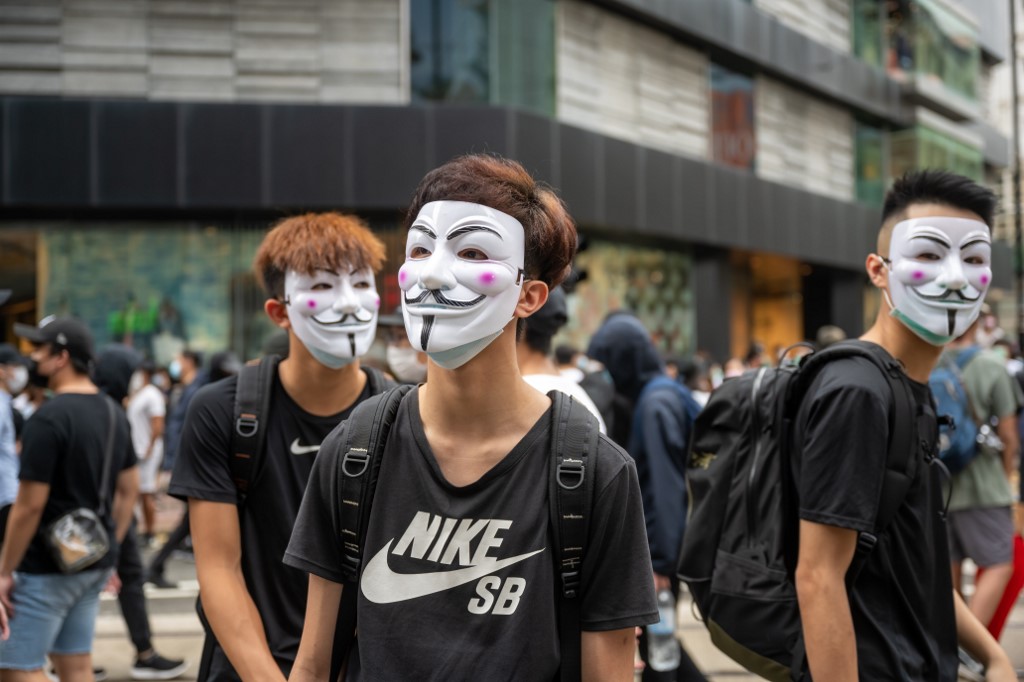Hong Kong: Financial markets recovered from initial lows struck after jitters from rising tensions between US and China were offset by optimism surrounding the reopening of economies and the support provided by individual governments.
European markets are opening on a firm note after Germany’s Ifo business-climate index came in at 79.5 points in May compared with a forecast of 76.8 points. The Euro Stoxx Index gained 0.7% after the data emerged.
Even as Washington threatens sanctions against Beijing over its national security law in Hong Kong, China’s National People’s Congress continued its annual meeting where lawmakers have focused on creating nine million new jobs rather than set an economic growth target.
“The change in focus by China’s National People’s Congress from GDP growth to jobs, shows the right prioritisation,” Amlan Roy, head of Global Macro Research at State Street Global Advisors, said.
“Emerging market countries cannot afford large lockdowns, as the job losses are likely to be semi-permanent. India and China’s local focus on jobs is understandable, as this crisis has lacked the global coordination we saw during the global financial crisis. Science needs to lead the way to comprehensive testing, tracking and an immunisation programme. Leaders must listen to the science while using it to bolster confidence,” Roy said.
Markets shut for holidays
Trade volumes were thin as India, Indonesia, Malaysia, Singapore and Philippines were shut for holidays. UK and US markets are also shut due to holidays.
Japan’s Nikkei 225 index rose 1.73% after the government lifted the state of emergency in Tokyo and five remaining prefectures as new coronavirus infections continue to fall. Investors also received a boost after a media report the country was considering a fresh stimulus package worth about $1 trillion and comprising financial aid programmes for companies hit by the coronavirus pandemic.
Australian markets were also firm, with the S&P ASX 200 jumping 2.16% as schools reopened and investors focused on economic recovery.
Credit markets were firm as the Asia IG Index tightened by a basis point at 106/108 bps. Sovereign CDS moved in by 1-2 basis points with new issues announced by AVIC Capital and China Ping An Insurance.
Hong Kong’s Hang Seng index edged up marginally by 0.1% after falling as much as 1.8% over a proposed national security law in Hong Kong and the US Commerce Department’s decision to add 24 Chinese organisations to the Entity List for engaging in activities contrary to the national security or foreign policy interests of the United States.
China’s mainland benchmark the CSI300 also ended up 0.1% after falling as much as 0.6%.
Special status
China’s proposes national security law that is widely perceived as hurting Hong Kong’s status as an international financial centre.
Currently, Hong Kong enjoys a special status under US laws and rescinding it would effectively mean treating the Asian financial hub no differently than any other Chinese city, opening it to US tariffs, sanctions, and export restrictions that apply to China.
China says the national security laws would ban sedition, secession, and subversion of China’s central government. Hong Kong’s pro-democracy protestors resumed their agitation on Sunday following Beijing’s move, which they say would be a blow to the city’s autonomy and residents’ civil liberties.
China’s foreign ministry spokesman said on Monday that some of the actions at last year’s protests were terrorist in nature and posed a risk to national security.
US officials say the new law, expected to be passed on Thursday May 28, would prevent Hong Kong from maintaining a high degree of autonomy, and will trigger US sanctions.
“If America wants to escalate the issue further, the nuclear option would be to remove the special status Hong Kong enjoys under US, law which would effectively reduce Hong Kong’s status to that of just another Chinese city,” Christopher Wood of Jefferies & Co. said in his note ‘Greed & Fear’.
“US financial and business interests would certainly be opposed to any such move. But it does not seem at the moment that the corporate sector’s lobbying power is working, with Donald Trump having seemingly decided that blaming China for Covid-19 is the best strategy for his re-election.”
He said the best hope for an improvement in US-China relations would be if the virus disappears as quickly, in line with his base case of a three-four month cycle.
“For this would allow the Donald to pivot back to focus on the positive, namely a recovering American economy and even a China trade deal, if Beijing has not walked out of the negotiations by then.”
Also on Asia Times Financial:
Analysts back Alibaba despite stock plunge
TikTok: Dark side to the fun app?
US security advisor renews warning on China’s proposed HK law
Foreign Exchange: ‘New Cold War’ talk pushes yuan to 12-year low
Asia Stocks
· Japan’s Nikkei 225 rose 1.73%
· Australia’s S&P ASX 200 jumped 2.16%
· Hong Kong’s Hang Seng index inched 0.1% higher
· China’s CSI300 edged up 0.14%
· The MSCI Asia Pacific index advanced 1.29%.
Stock of the day
CanSino Biologics fell as much as 28% after it said: “Our findings suggest that the Ad5 vectored Covid-19 vaccine warrants further investigation”, dealing a setback to hopes that the company had made progress in discovering a coronavirus vaccine.
























